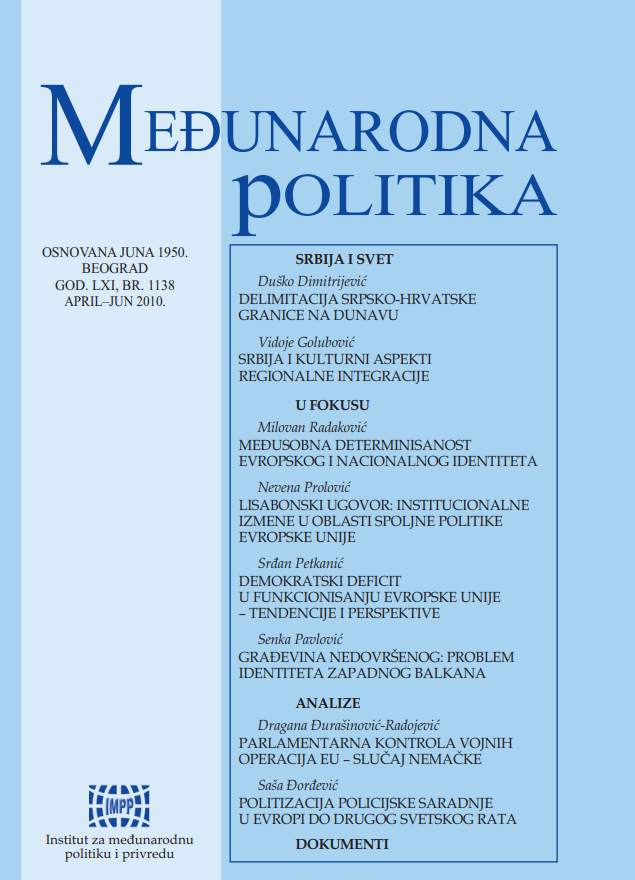Demokratski deficit u funkcionisanju Evropske unije – tendencije i perspektive
Democratic Deficit in the Functioning of the European Union – Tendencies and Prospectives
Author(s): Srđan PetkanićSubject(s): EU-Accession / EU-DEvelopment
Published by: Институт за међународну политику и привреду
Keywords: democratic deficit; European Union; legitimacy; institutions; theoretical approaches
Summary/Abstract: The democratic deficit is a concept invoked principally in the argument that the European Union and its various bodies suffer from a lack of democracy and seem inaccessible to the ordinary citizen because their method of operating is so complex. The view is that the Community institutional set-up is dominated by an institution combining legislative and government powers. This article examines, identifies and analyses three main theoretical approaches trying to solve complex issue of so called “structural democratic deficit”, in that it is inherent in the construction of the European Union as a supranational union that is neither a pure intergovernmental organization, nor a true federal state. Main theoretical views are focused on how to reconcile the principle of equality among nation states, which applies to international (intergovernmental) organizations, and the principle of equality among citizens, which applies within nation states.
Journal: Међународнa пoлитика
- Issue Year: 61/2010
- Issue No: 1138
- Page Range: 76-90
- Page Count: 15
- Language: Serbian

